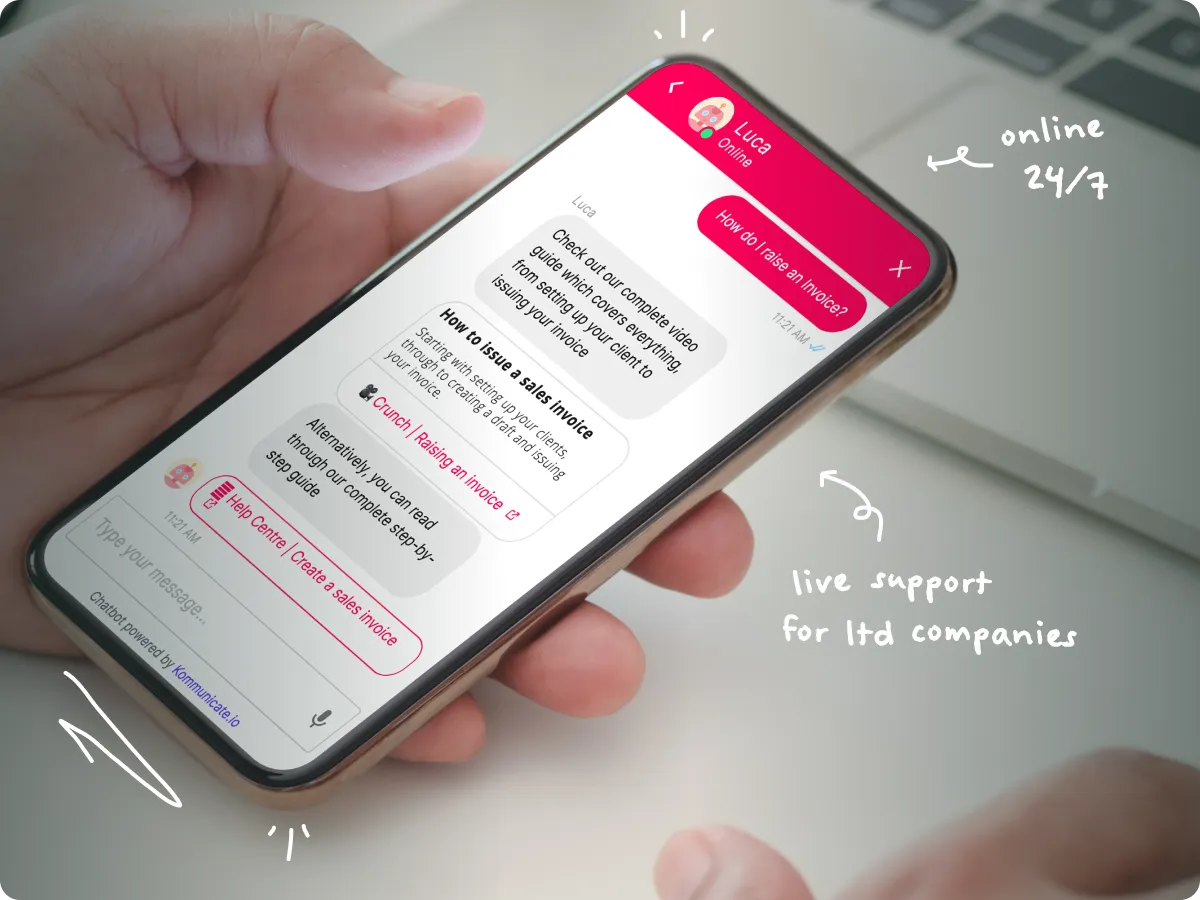In today's digital era, the sophistication of fraudulent schemes, particularly those involving HMRC scam letters, is on the rise.
We’ve all heard the horror stories of unwitting individuals handing over £1000s to some faceless and cold-blooded scammer on the other side of the world.
In fact, as you may have read, HMRC recently issued a warning reminding 12 million tax customers to be on the lookout for tax scams. This came after they registered over 130,000 tax scam complaints in the year leading up to September 2023, with 58,000 of these instances involving counterfeit tax rebate offers.
So the problem is bold and evident, and scammers are getting evermore sophisticated in their methods of cheating decent, hard-working people out of their money.
Therefore it's essential for individuals and small businesses to stay informed and cautious.
This article aims to shed light on the tactics used in these scams and provide practical advice on how to recognize and handle them effectively.
What are HMRC Scam Letters?
There are various types of HMRC scams, including bogus calls, social media, Whatsapp messages and texts, phishing emails and fake, imposter websites. But it’s the scams in the form of letters we’ll focus on here.
*Note: Genuine Letters can be sent from HMRC in the post via direct, offline mail or online as an email. So when we say ‘HMRC letters’ we’re referring to letters you might receive either by post or email. The same advice for dealing with scams applies to both.
HMRC scam letters are deceptive communications masquerading as official correspondence from HM Revenue and Customs. These fraudulent letters aim to trick recipients into divulging personal or financial information. Usually in an attempt to trick them into sending money to the scammer who sent the letter.
Understanding their nature and the potential threats they pose is the first step in safeguarding yourself and your business.
{{pt-self-assessment}}
Recognizing the Red Flags
Identifying an HMRC scam letter requires attention to certain telltale signs. These include unexpected requests for personal information, urgent or threatening language, and suspicious sender details.
It's therefore crucial to distinguish between authentic HMRC letters and imposters. Genuine HMRC communications have specific characteristics and standards.
Let's delve into these indicators more deeply to equip you with the knowledge to spot these fraudulent attempts.
Do your homework! Familiarise yourself with HMRC scams
They say prevention is better than cure. And that is certainly true in the case of scams. The first step to protect yourself, is to educate yourself. So you’ll be much less naive, and more aware of the typical forms that HMRC scams and phishing attempts take.
Scams impersonating HMRC adopt various strategies. While some promise a tax refund, others assert that you must update your tax information, or they may even falsely threaten immediate arrest for tax evasion.
On the HMRC website you can see specific descriptions and visual examples of various HMRC scams.
Does it look real?
The first obvious, but commonly missed, giveaway that an HMRC letter is fake and probably a scam is the quality of the language, content and design. You should immediately inspect the letter closely, looking out for;
- Spelling mistakes and grammatical errors
- Low quality and visual elements like the header, address, titles, sign-off details or logo
- Incorrect or outdated address details
If the letter contains errors like these and appears to be unprofessional/fake, then you are probably looking at a scam letter.
You can check the list of genuine HMRC contacts here, on their website.
Demands for Immediate or Urgent Payment = Red Alert!
The next, and perhaps biggest, major warning sign is the poor use of pressing calls for immediate action. A prevalent form of a deceptive HMRC scam letter is one that insists on urgent payment. Should you receive an initial correspondence from HMRC demanding instant payment, this should raise immediate suspicion.
It's important to note that HMRC won't insist on on-the-spot payment in their initial communication with you, even if there are outstanding dues. An authentic HMRC letter will typically invite you to engage in a dialogue about any overdue amounts in the initial stages.
HMRC Bank Detail Updates - Caution Required!
Exercise caution with any correspondence mentioning bank details. A common tactic in fraudulent HMRC letters involves informing recipients about a supposed update to HMRC's banking information.
These letters often prompt you to redirect your payments to new account details, which unfortunately lead straight to the scammer's account. This not only results in financial loss to you but also leaves your actual tax obligations with HMRC unsettled.
You can see a list of accurate and official bank account details for Self Assessment tax payments to HMRC here. As well as Corporation tax and VAT.
Were you expecting the letter?
Scammers often send HMRC fraud letters/emails or phishing attempts around the key tax dates in the UK tax calendar.
So you should be extra vigilant around these times. Furthermore, it’s a good idea to keep track of any expected correspondence from HMRC or your accountant relating to tax returns or Self Assessment.
You can check all of the genuine recent letters that HMRC has issued here.
What to do if you receive a scam letter
If you think you've been targeted by a fraudster that has sent you a fake/scam HMRC letter or text, phone call or message, then you should either:
- Contact the Self Assessment Helpline on 0300 200 3310 inside the UK. Or +44 161 931 9070 outside the UK. And ask for advice.
- Visit HMRC’s dedicated scam reporting page and follow the instructions.
On the scam reporting web-page you will find all of the relevant guidance and contacts for reporting different types of scams.
Before you do that though, ensure remember the following advice when you first open or receive a suspected scam correspondence:
- Don’t click any links in an email/letter sent via email!
- Don’t call any numbers on the letter/email/message!
- Don’t try to contact or respond to the sender of the correspondence!
- Don’t download anything from the email/message!
- Don’t delete the correspondence before taking a picture/screenshot or forwarding to HMRC!
HMRC might ask you to upload or forward a copy of the scam letter. After which you can delete the email/message (if it’s an electronic correspondence) and block the sender.
If you are a Crunch Client using one of our subscription packages or Self Assessment service, contact our experts advisors, which are included with Crunch’s paid services, and ask them for assistance. They may also ask you to show them a copy of any suspected scam letters.
Striking back at scammers
Although HMRC scams are a real danger and are increasingly more challenging to navigate, there are several key steps you can take to stay safe, and supportive resources you can access for help.
So we want to conclude by restoring your faith in humanity. As there are some great people out there committed to cracking down on scams.
Firstly, be sure to check out Action Fraud, a 24/7 reporting service for reporting business fraud and scams organised by the UK Police.
Secondly, we highly recommend taking a look at Scammer Payback Youtube channel and the amazing work they do. They’re a group of ethical hackers that find and destroy scammers that have stolen huge sums of money from vulnerable victims.
They call known scammers pretending to be victims, whilst hacking into their computer, destroying their files and taking back the money they have stolen, which they return to the victim. Before reporting the scammers to the police.
And they film all of this for your entertainment : ) You’ll see some of the world's worst scammers crying and begging for forgiveness - warning, it’s addictive!
Hopefully the information in this article leaves you better informed and more confident in managing the security of your business and protecting your data. If you need any more advice with this, don’t hesitate to reach out to our friendly team here at Crunch.
.svg)

.jpeg)









